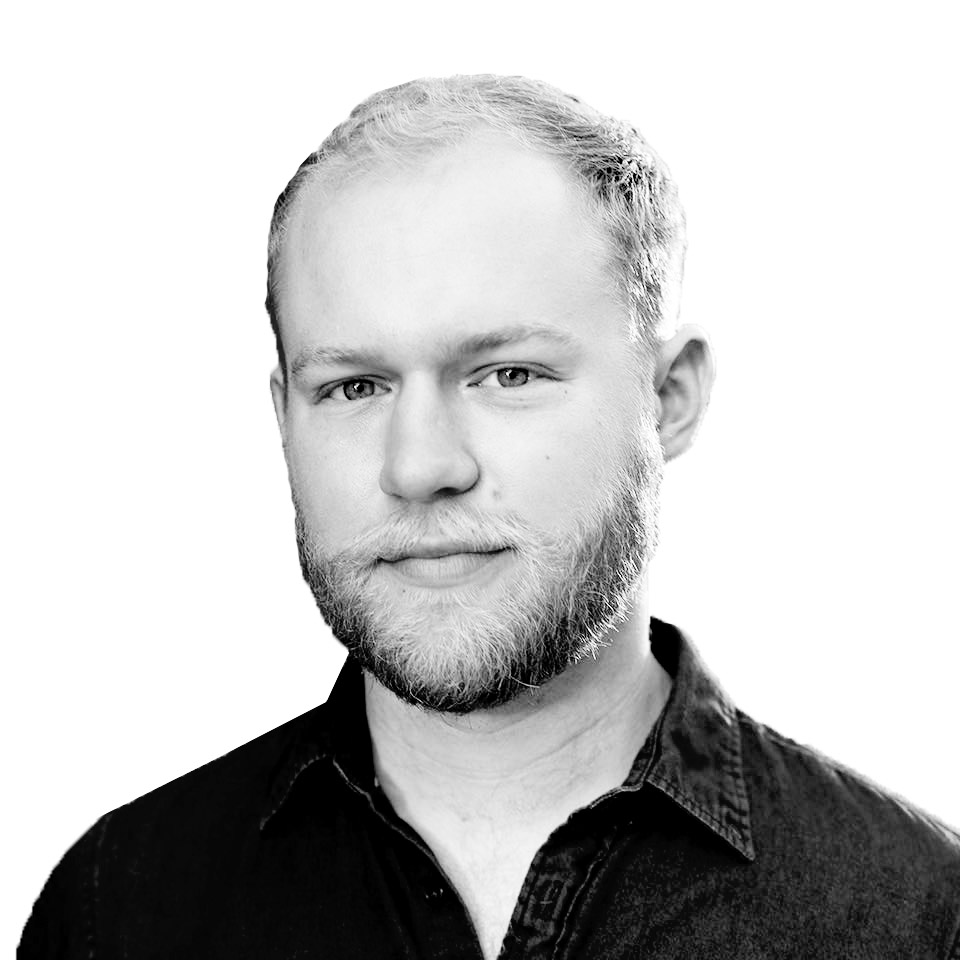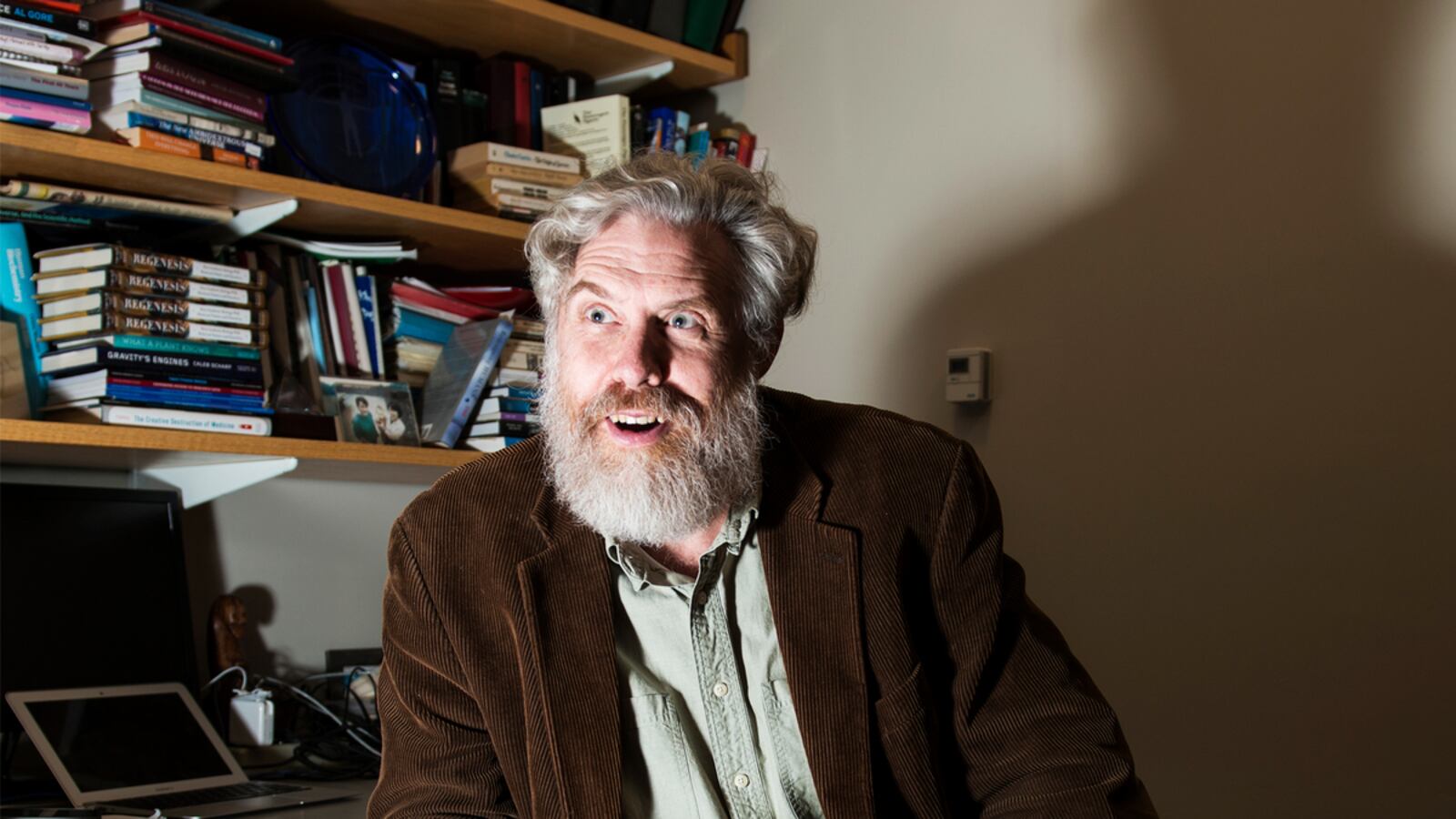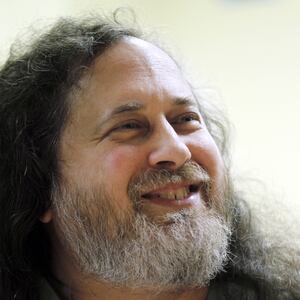A famed Harvard geneticist is defending his work on a genetics-based dating app—and distancing himself from Jeffrey Epstein, the science-obsessed pedophile who fantasized about spreading his DNA by inseminating 20 women at a time at his ranch.
“The fact that there are people with completely idiotic ideas about genetics doesn’t mean I’m one of them,” George Church told The Daily Beast in a phone interview.
“Just because they hung out with me briefly doesn’t mean I bought into their malarkey in any sense, just like geneticists today don’t buy into the eugenics of the 1920s.”
Church has had to account for his links to Epstein numerous times since the disgraced money manager was indicted for sex-trafficking and then killed himself in jail last August. Most recently, he was grilled about their relationship during a 60 Minutes profile that included Church’s plans for the dating app, which critics have denounced as a modern form of eugenics.
Epstein helped fund Church’s lab at Harvard before being unmasked as a predator—but Church has admitted maintaining contact with Epstein even after the financier served time and registered as a sex offender.
Now Church has confirmed to The Daily Beast that he was one of several notable scientists—including Harvard biology professor Martin Nowak, Harvard astronomy professor Dimitar Sasselov, MIT physics professor Seth Lloyd, and the pioneering biologist Steven Benner—who attended a 2007 gathering on Epstein’s private island Little St. James.
Photos verified by Church show them together on the beach and around a blackboard in discussion with Epstein. The property was nicknamed “pedophile island” by locals because of the alleged sexual abuse of girls, but Church said he saw nothing untoward at the gathering, which predated Epstein’s 2008 guilty plea.
“Scientific meetings take place all over the place, and usually you’re so wrapped up in the meeting that you don’t take advantage of the place you’re in. This was one of those cases. We did our science nerd thing and left,” he said, noting that the scientists slept on a different island.
Church said the attendees were there to discuss the origins of life and that Nowak later published a paper based on the discussions. “We just came there for the meeting and then came back. We looked around the beach a bit. There wasn’t much there, frankly. He was building something, some structure,” he said.
Church said that Epstein had no influence on his work, which has been focused on allowing humans to live longer with fewer diseases.
To that end, he made an off-handed reference during the 60 Minutes interview to a dating app that would match couples with the goal of eliminating severe hereditary diseases. His brainchild was not well-received. A Fordham associate ethics professor told The Daily Beast the concept “sounds like eugenics,” likening it to the Nazi ideal of cultivating a master race.
Church said he’s been describing the same idea for years now without any furor.
“If you know what you’re doing is the right thing to help families have healthy children, I don’t think you need to worry whether somebody somewhere has been associated with you in a way that’s less than ideal.”
Church said it was preposterous to compare his work to eugenics.
“It’s ludicrous to think that’s what I’m doing, but it makes good clickbait, doesn’t it?” he said.
The app would prevent people from matching with partners with similar genetic mutations that would induce a congenital disease like Tay-Sachs on the couple’s children. The geneticist said the technology will likely work alongside established dating sites and apps as a premium service rather than as a standalone, and it wouldn’t have access to a user’s full genome, only whether the person carries specific alleles related to congenital disease.
“Eugenics is coercive. Rather than restricting people’s options for their health and their families, we’re expanding them,” he said. “We’re not going to be forcibly sterilizing people, if that’s the business model they think we’re up to. That’s as far from what we intend to do as can be.”
The MIT Technology Review identified the technology’s parent company as DigiD8, incorporated in September by Church’s cofounder Barghavi Govindarajan. Its slogan: “Science is your wingman.” Church said he’s funding the app alongside private investors and declined to disclose the amount the fledgling company has raised, calling it “adequate.” Harvard is not among the investors, he said.
He sees the matchmaking app as a continuation of his work on genetics and part of his duty as a scientist.
“I felt like I’m providing all these great tools, but they’re very expensive. Gene therapy is a couple million bucks. I feel like it’s my responsibility to point out alternatives,” he said. “It’s very early stage, though.”
One of the questions lingering over the proposed technology is who will decide what genes the software will screen for. Would it further stigma against the chronically ill and disabled? Against trans people, as Vice suggested? Against certain races?
Church said he and his team would leave that question to clinical geneticists, but he described the criteria as genes that result in “illnesses that cause very premature deaths, often with pain and a lot of medical costs.” He said that the screening would likely rule out only five percent of someone’s dating pool.
“There is no line, just as there’s no line with what speed limits should be on the road, but you have to draw one, and medical doctors are very good at drawing practical lines,” he said.
Church said he’s open to critics, despite what he saw as their overreaction.
“If any doubters, after they see what’s actually there, make a compelling counterargument, I may change directions,” he told The Daily Beast. “I’m very open to suggestions, and I’m very interested to hear what everybody has to say once they see what’s really there.”
He said he wasn’t expecting 60 Minutes to air his comments about the dating app. He published a FAQ Wednesday on his website explaining some details of what the technology would look like.
There are medical tests that perform the same function Church’s dating app would. Couples considering IVF can take genetic compatibility tests for specific conditions, and women undergoing the treatment can screen their embryos and weigh the option of abortion if they test positive. Church’s app would start far earlier in the romantic process, which he views as a positive.





